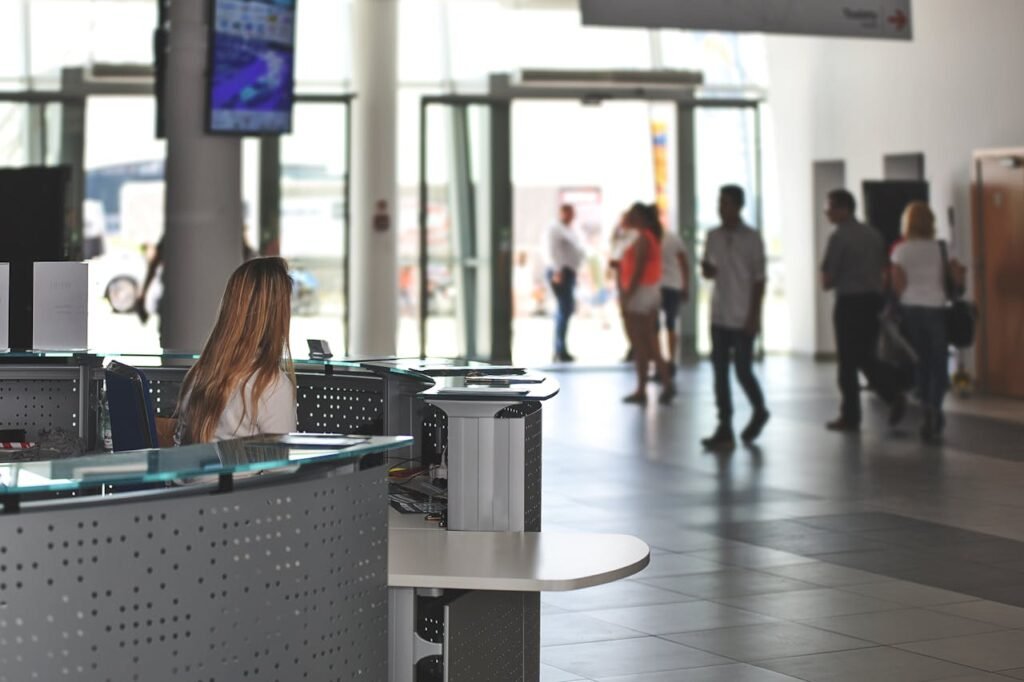Key Takeaways
- Facility management plays a crucial role in ensuring business operations run smoothly.
- Effective space utilization and maintenance practices can significantly increase productivity.
- Sustainability initiatives in facility management lead to cost savings and environmental benefits.
- Technological advancements streamline monitoring and management tasks.
Table of Contents
- Importance of Facility Management
- Space Utilization
- Maintenance Practices
- Sustainability Initiatives
- Technology in Facility Management
- Case Studies
Importance of Facility Management
Facility management is essential for businesses to maintain operational efficiency. Properly managed facilities help create a conducive work environment, increasing employee satisfaction and productivity. The initial investment in efficient systems and professional facility management services leads to long-term savings and fewer interruptions in daily operations.
According to research from IFMA, effective facility management is directly linked to improved organizational performance. It encompasses several critical functions, from maintaining physical assets to ensuring the safety and comfort of occupants. Neglecting proper management can lead to operational disruptions, unexpected expenses, and a decline in overall business performance. Businesses implementing strategic facility management can see enhanced efficiency, reduced costs, and a more motivated workforce.
Space Utilization
One key aspect of facility management is optimizing space utilization. By reconfiguring office layouts and using available space better, businesses can enhance collaboration and reduce unnecessary overhead costs. A study by Statista revealed that effective space utilization can save up to 30% of operational costs. Companies like Set Point Heating and Cooling are crucial in maintaining an optimal environment by ensuring heating and cooling systems function efficiently. This involves not just the physical rearrangement of furniture but also considering employees’ needs and working habits to design a space that fosters efficiency and innovation.
Effective space management involves understanding the workforce’s needs and creating environments that foster productivity and teamwork. This can include versatile workspace designs, efficient storage solutions, and multipurpose areas. Incorporating flexible workspaces that can be adjusted based on project requirements helps maximize the use of space. The outcome is a workspace that is more dynamic and flexible, able to adjust to evolving business requirements, ultimately leading to happier and more productive employees.
Maintenance Practices
Regular maintenance practices are critical in ensuring that facilities remain in optimal condition. This includes routine inspections, timely repairs, and preventive maintenance. Ignoring these practices can lead to costly disruptions and repairs down the line. For instance, a neglected HVAC system may eventually require expensive emergency repairs or replacements, disrupting business operations. Implementing a thorough maintenance routine can identify and address minor issues before they escalate into more severe problems, extending critical systems’ lifespan.
Implementing a comprehensive maintenance schedule ensures that minor issues are addressed before they become significant problems. This extends the lifespan of building systems and equipment and helps maintain a safe and comfortable environment for employees and clients. Additionally, well-maintained facilities help prevent workplace accidents and ensure business compliance with health and safety standards. Regular upkeep of the facility is a proactive approach that saves money and safeguards the well-being of everyone using the space.
Sustainability Initiatives
Incorporating sustainability initiatives within facility management benefits the environment and leads to business cost savings. Implementing energy-efficient systems, reducing waste, and utilizing renewable resources can significantly lower operating expenses. These initiatives can range from simple measures like adopting recycling programs to more significant investments such as installing solar panels or energy-efficient heating and cooling systems.
For example, upgrading to LED lighting, installing smart thermostats, and utilizing renewable energy sources such as solar panels can dramatically reduce energy consumption and costs. Sustainable practices also enhance a company’s reputation, appealing to environmentally conscious consumers and stakeholders. As businesses become more eco-friendly, they can attract clients and employees who prioritize sustainability, improving their market position and brand image.
Technology in Facility Management
Advancements in technology have revolutionized facility management. Tools like automated monitoring systems, intelligent sensors, and data analytics allow for real-time tracking of facility operations. These technologies enable proactive management and swift resolution of potential issues. For example, innovative HVAC systems can alert facility managers to performance issues before they result in equipment failure, ensuring continuous comfort and functionality.
For instance, integrated facility management systems (IFMS) can provide a centralized platform for monitoring and controlling various aspects of building operations, from energy management to security. This level of control and oversight helps facility managers make informed decisions and optimize resources effectively. Using technology in facility management improves efficiency and frees up time for managers to focus on strategic initiatives, driving further business growth.
Case Studies
Several organizations have successfully implemented effective facility management practices. For example, a major tech company reconfigured its office space to encourage open collaboration, resulting in a 20% increase in employee productivity. Another instance is a retail giant that adopted energy-efficient lighting and reduced its electricity expenditure by 15%. These improvements resulted in cost savings and boosted employee morale by creating a better working environment.
These case studies highlight the benefits of investing in robust facility management practices. Businesses prioritizing facility management improve their operational efficiency and create a more sustainable and enjoyable work environment. The lessons from these examples emphasize the importance of strategic planning and adopting best practices in facility management to achieve significant business advantages.

